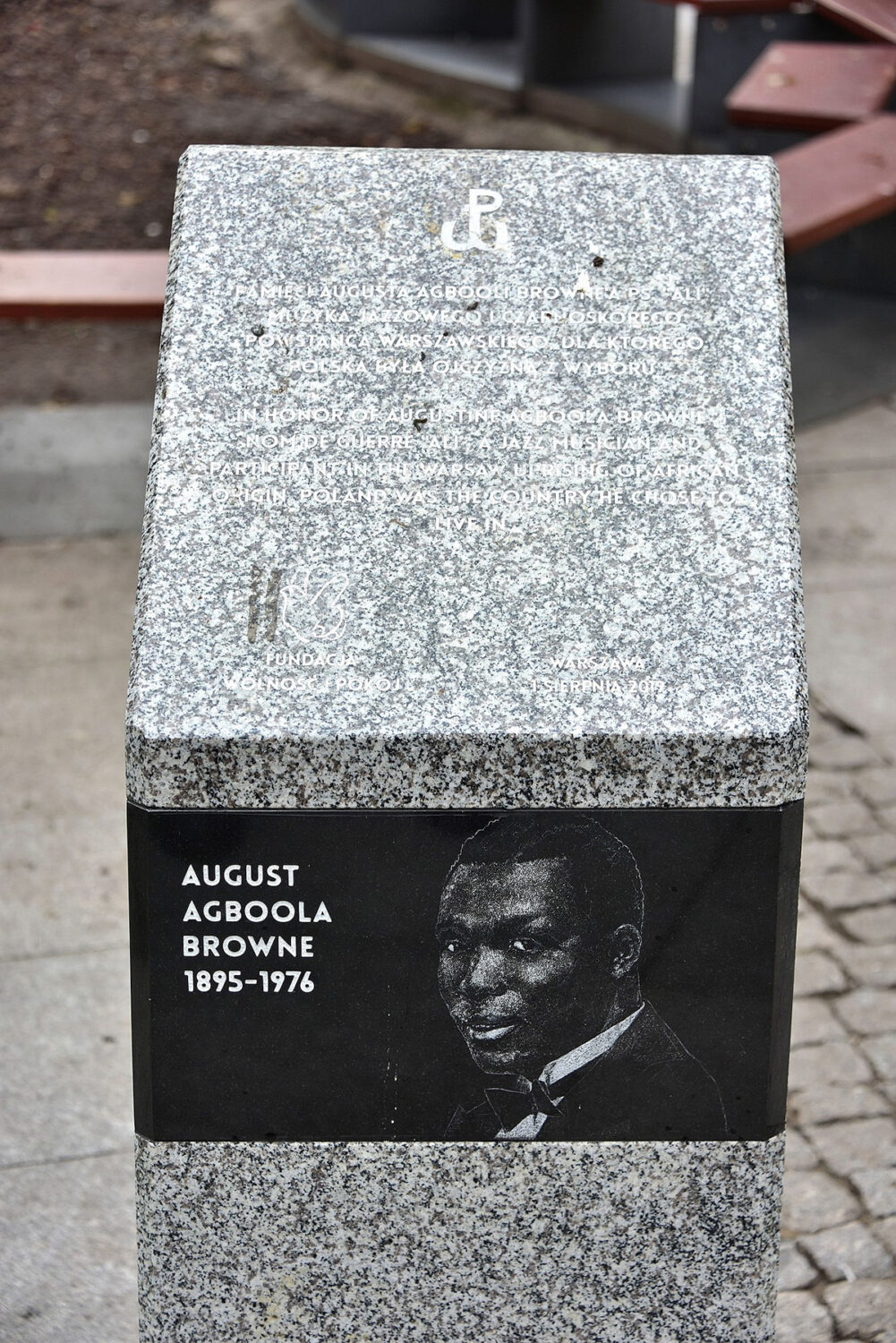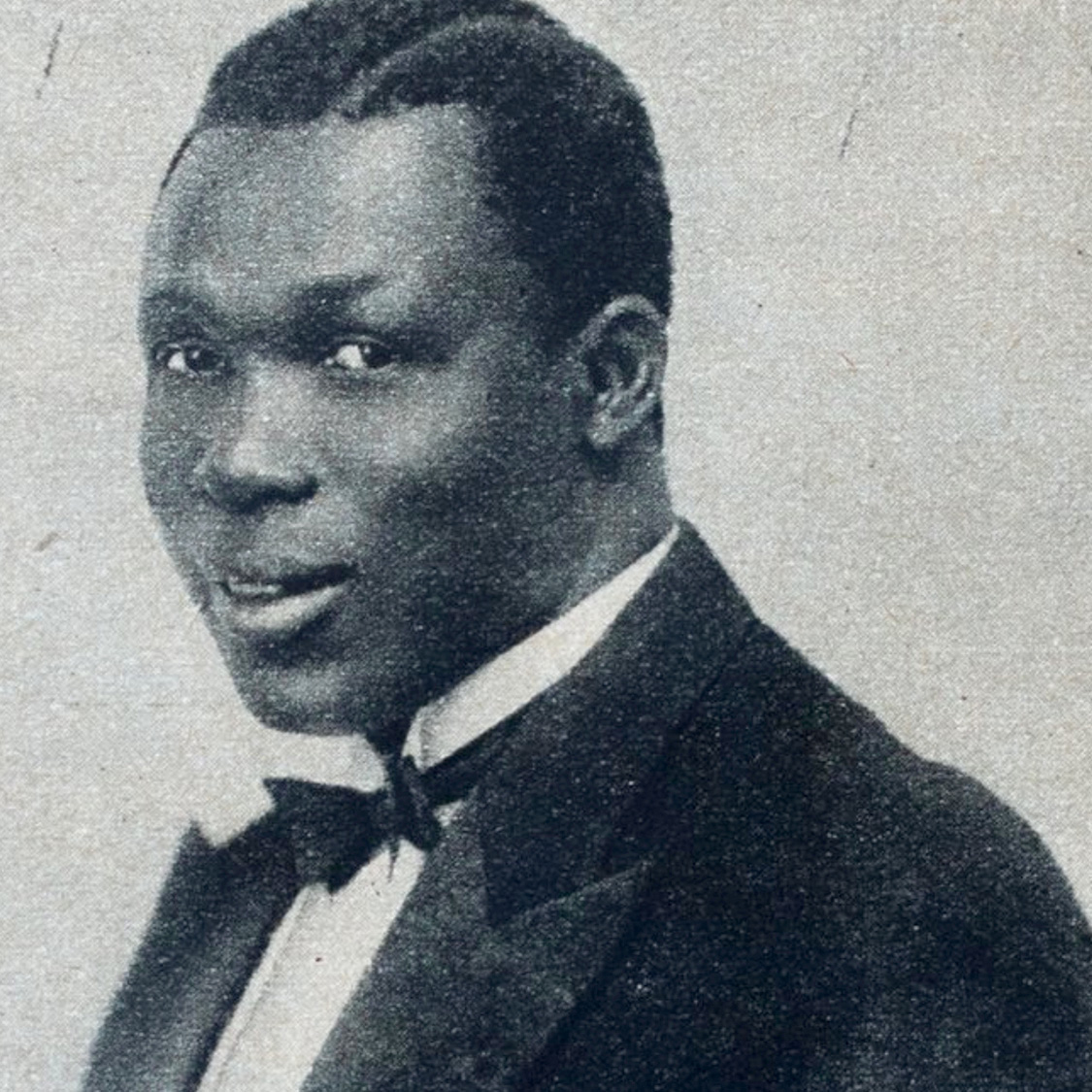Polish freedom fighter, jazz musician, and British citizen August Agboola Browne was born in British-controlled Lagos, Nigeria, on July 22, 1895. He was the son of Jozefina and Wallace Browne, a longshoreman. Browne traveled to London as a young man and found work in a theater troupe that took him to countries in continental Europe. Around 1922 he moved to Poland and worked as a day laborer in Warsaw. After teaching himself to play drums, Browne began performing with bands in the city’s nightclubs and restaurants. Already a rarity owing to his race in a city with so few foreigners of color, he further distinguished himself as a top musician when in 1928, he became the first person of West African descent to record a jazz album in Poland. Browne married Zofyja Pykowna, a Polish woman with whom he had three children.
Home and professional life proceeded normally in the 1930s until Germany made good on its threats to subjugate Poland and mobilized its armies for an invasion on September 1, 1939. The Soviet Union, Poland’s eastern neighbor, invaded the country sixteen days later. With the collapse of Warsaw on September 28, 1939, Poland was split into zones occupied by its conquerors. Browne sent his family to England while he disappeared underground to risk his life in the resistance with fellow Polish freedom fighters who conducted a host of clandestine operations. His specialty was electronic communication equipment, information, and propaganda distribution. Browne assisted efforts to relieve conditions in the infamous Warsaw Ghetto, where thousands of Jews were intentionally starved to death. Browne, code name “Ali,” was attached to Maj. Georg Antoczewiszka’s 2nd Battalion during the ill-fated Warsaw Uprising in the summer of 1944, in which the Nazis reduced 85% of the city to rubble and killed and injured 200,000 Poles.

At the beginning of the post-war era, Browne tried to revive his career as a musician but without much success as Poland struggled to adjust to communist rule. Eventually, he was employed as an office worker in cultural affairs at Warsaw’s Department of Culture and Art. He appeared as an actor in a movie that portrayed Polish fighters in World War II. Browne and his second wife, Olga Miechowicz, left Poland and resettled in northwest London in 1958. Though he was fluent in several languages, he only spoke Polish at home. He occasionally joined jam sessions with other musicians, but for the most part, he lived quietly until his death on September 7, 1976, at the age of 81.
It was the chance discovery in 2009 by an employee at Warsaw Rising Museum of Browne’s photo affixed to his 1949 application to join a war veterans’ organization. This discovery brought attention to his war record and professional career and set in motion an effort to honor him as one of Poland’s outstanding foreign-born artists and heroic patriots. In 2019, a ceremony in Warsaw Central was held for the unveiling of a stone monument that featured Browne’s likeness.

